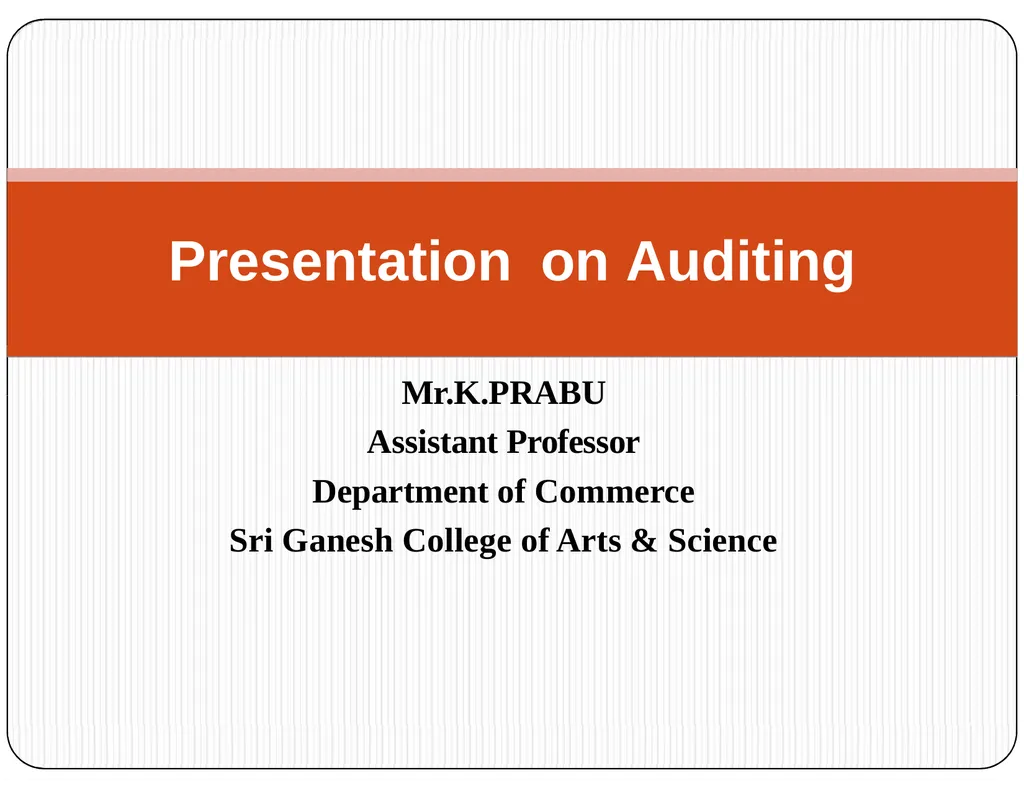
Presentation on Auditing Mr.K.PRABU Assistant
Author: alida-meadow | Published: 2025-05-28
Description: Presentation on Auditing Mr.K.PRABU Assistant Professor Department of Commerce Sri Ganesh College of Arts Science 1 Meaning of Auditing The origin of auditing may be traced back to the 18th century when the practice of large-scale
Download Presentation
Download the PPT/PDF: Download
Transcript:
Loading transcript…